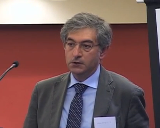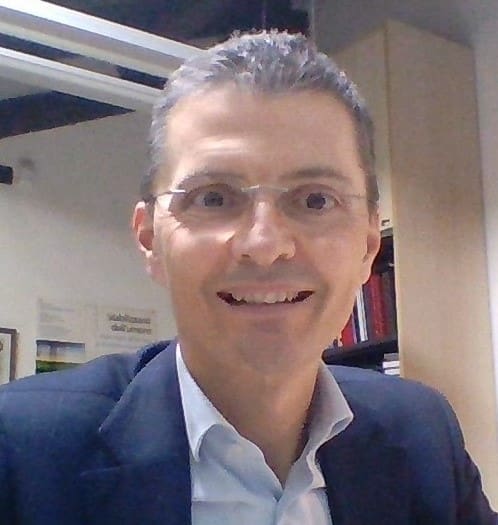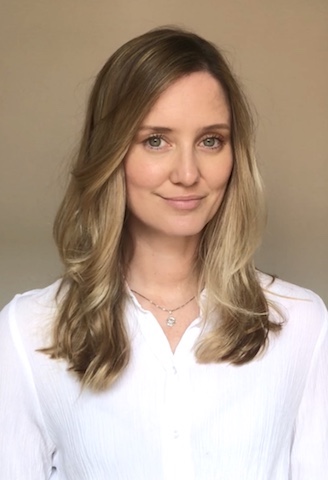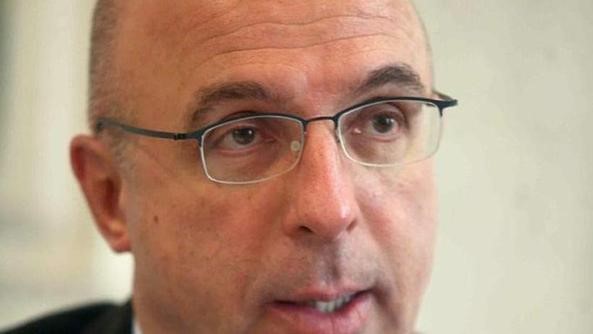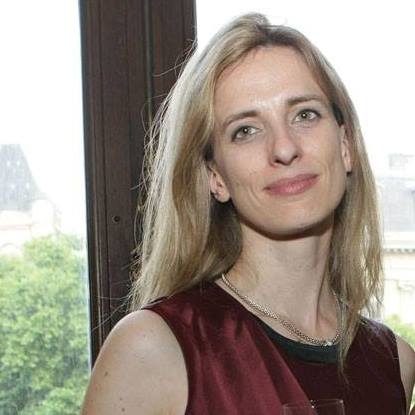Studying at the University of Verona
Here you can find information on the organisational aspects of the Programme, lecture timetables, learning activities and useful contact details for your time at the University, from enrolment to graduation.
Academic calendar
The academic calendar shows the deadlines and scheduled events that are relevant to students, teaching and technical-administrative staff of the University. Public holidays and University closures are also indicated. The academic year normally begins on 1 October each year and ends on 30 September of the following year.
Course calendar
The Academic Calendar sets out the degree programme lecture and exam timetables, as well as the relevant university closure dates..
| Period | From | To |
|---|---|---|
| 1 SEMESTRE PROFESSIONI SANITARIE | Oct 1, 2021 | Dec 23, 2021 |
| 1° e 2° semestre (corsi annuali) PROFESSIONI SANITARIE | Oct 1, 2021 | Sep 30, 2022 |
| 2 SEMESTRE PROFESSIONI SANITARIE | Jan 10, 2022 | Sep 30, 2022 |
| Session | From | To |
|---|---|---|
| TERP SESSIONE INVERNALE 2 ANNO | Dec 13, 2021 | Jan 28, 2022 |
| TERP SESSIONE INVERNALE 1-3 ANNO | Jan 10, 2022 | Feb 4, 2022 |
| TERP SESSIONE ESTIVA 2 ANNO | May 23, 2022 | Jun 24, 2022 |
| TERP SESSIONE ESTIVA 1-3 ANNO | Jul 4, 2022 | Jul 29, 2022 |
| TERP SESSIONE AUTUNNALE | Sep 1, 2022 | Sep 30, 2022 |
| Session | From | To |
|---|---|---|
| TERP SESSIONE AUTUNNALE | Nov 1, 2022 | Dec 23, 2022 |
| TERP SESSIONE PRIMAVERILE | Mar 1, 2023 | Apr 30, 2023 |
| Period | From | To |
|---|---|---|
| Festa di Tutti i Santi | Nov 1, 2021 | Nov 1, 2021 |
| Festa dell'Immacolata Concezione | Dec 8, 2021 | Dec 8, 2021 |
| Festività natalizie | Dec 24, 2021 | Jan 2, 2022 |
| Festività pasquali | Apr 15, 2022 | Apr 19, 2022 |
| Festa della Liberazione | Apr 25, 2022 | Apr 25, 2022 |
| FESTA DEL LAVORO | May 1, 2022 | May 1, 2022 |
| Festa della Repubblica | Jun 2, 2022 | Jun 2, 2022 |
| Santo Patrono - Rovereto | Aug 5, 2022 | Aug 5, 2022 |
| Chiusura estiva | Aug 15, 2022 | Aug 20, 2022 |
| Description | Period | From | To |
|---|---|---|---|
| TIR TERP 3 ANNO 1 SEM 1 PERIODO | TIR TERP 3 ANNO 1 SEM 1 PERIODO | Nov 15, 2021 | Dec 22, 2021 |
| TIR TERP 2 ANNO 1 SEM | TIR TERP 2 ANNO 1 SEM | Jan 31, 2022 | Mar 11, 2022 |
| TIR TERP 1 ANNO 2 SEMESTRE 1 PERIODO | TIR TERP 1 ANNO 2 SEMESTRE 1 PERIODO | Mar 14, 2022 | Apr 8, 2022 |
| TIR TERP 3 ANNO 1 SEM 2 PERIODO | TIR TERP 3 ANNO 1 SEM 2 PERIODO | Mar 21, 2022 | May 3, 2022 |
| TIR TERP 3 ANNO 2 SEM | TIR TERP 3 ANNO 2 SEM | May 16, 2022 | Jun 24, 2022 |
| TIR TERP 1 ANNO 2 SEMESTRE 2 PERIODO | TIR TERP 1 ANNO 2 SEMESTRE 2 PERIODO | May 26, 2022 | Jun 24, 2022 |
| TIR TERP 2 ANNO 2 SEM 1 PERIODO | TIR TERP 2 ANNO 2 SEM 1 PERIODO | Jun 27, 2022 | Jul 29, 2022 |
| TIR TERP 2 ANNO 2 SEM 2 PERIODO | TIR TERP 2 ANNO 2 SEM 2 PERIODO | Aug 29, 2022 | Sep 28, 2022 |
Exam calendar
Exam dates and rounds are managed by the relevant Medicine Teaching and Student Services Unit.
To view all the exam sessions available, please use the Exam dashboard on ESSE3.
If you forgot your login details or have problems logging in, please contact the relevant IT HelpDesk, or check the login details recovery web page.
Should you have any doubts or questions, please check the Enrollment FAQs
Academic staff
 loretta.berti@univr.it
loretta.berti@univr.it
 borghesi.a@mail.apss.tn.it
borghesi.a@mail.apss.tn.it
 silvia.chiesa@apss.tn.it
silvia.chiesa@apss.tn.it
 drgasp@tin.it
drgasp@tin.it
 enrica.latterini@apss.tn.it
enrica.latterini@apss.tn.it
 renata.lazzeri@apss.tn.it
renata.lazzeri@apss.tn.it
 alessandra.mamo@univr.it
alessandra.mamo@univr.it
 anja.meyer@univr.it
anja.meyer@univr.it
 rocco.micciolo@economia.unitn.it
rocco.micciolo@economia.unitn.it
Study Plan
The Study Plan includes all modules, teaching and learning activities that each student will need to undertake during their time at the University.
Please select your Study Plan based on your enrollment year.
1° Year
| Modules | Credits | TAF | SSD |
|---|
2° Year activated in the A.Y. 2022/2023
| Modules | Credits | TAF | SSD |
|---|
3° Year activated in the A.Y. 2023/2024
| Modules | Credits | TAF | SSD |
|---|
| Modules | Credits | TAF | SSD |
|---|
| Modules | Credits | TAF | SSD |
|---|
| Modules | Credits | TAF | SSD |
|---|
Legend | Type of training activity (TTA)
TAF (Type of Educational Activity) All courses and activities are classified into different types of educational activities, indicated by a letter.
Psychological and psychotherapeutical foundations for rehabilitation (It will be activated in the A.Y. 2022/2023)
Teaching code
4S01637
Credits
6
Scientific Disciplinary Sector (SSD)
-
Learning outcomes
The teaching aims to provide knowledge on the phases of the diagnostic process and apply this knowledge to the practical consultation of the manuals and to the understanding of the choice of tests based on the different purposes of the evaluation process. Students will be provided with tools to learn the cognitive techniques behavioral and developing the capacity for their application in psychiatric rehabilitation, recognizing family dynamics and offering support through individual and group interventions. PSYCHODIAGNOSTIC MODULE Training objectives: The aim of the course is to present the characteristics of the tests used as an assessment tool in the psychological field, in particular by promoting a critical spirit in clinical practice and in the interpretation of results as a starting point and modulation of interventions. At the end of the course, students must be able to: know the phases of the diagnostic process; to know the peculiarities and the differences of the evaluation in the different ages of the life span; know the difference between evaluation for people with typical and atypical development; know and understand the structure, the psychometric characteristics and the functions investigated by the main tests of intelligence, neuropsychological and psycho-affective. Students must also be able to apply this knowledge to the practical consultation of the manuals and to the understanding of the choice of tests based on the different purposes of the evaluation process. COGNITIVE AND BEHAVIORAL PSYCHOTHERAPY MODULE Educational objectives: 7 Learn some basic theoretical concepts with respect to the main theory and cognitive behavioral techniques. Learn some possible practical applications of cognitive behavioral techniques in the field of psychiatric rehabilitation. GROUP AND FAMILY PSYCHOTHERAPY MODULE Training objectives: The student must be able to recognize the dynamics of psychotic families and must be able to identify the most suitable strategies to get in touch with all family members; must be able to recognize the dynamics of the groups and must know how to orient and direct the work of the groups; must be able to recognize the dynamics of the team-group in order to operate in the direction of the work group The teaching aims to provide knowledge on the phases of the diagnostic process and apply this knowledge to the practical consultation of the manuals and to the understanding of the choice of tests based on the different purposes of the evaluation process. Students will be provided with tools to learn the cognitive techniques behavioral and developing the capacity for their application in psychiatric rehabilitation, recognizing family dynamics and offering support through individual and group interventions. PSYCHODIAGNOSTIC MODULE Training objectives: The aim of the course is to present the characteristics of the tests used as an assessment tool in the psychological field, in particular by promoting a critical spirit in clinical practice and in the interpretation of results as a starting point and modulation of interventions. At the end of the course, students must be able to: know the phases of the diagnostic process; to know the peculiarities and the differences of the evaluation in the different ages of the life span; know the difference between evaluation for people with typical and atypical development; know and understand the structure, the psychometric characteristics and the functions investigated by the main tests of intelligence, neuropsychological and psycho-affective. Students must also be able to apply this knowledge to the practical consultation of the manuals and to the understanding of the choice of tests based on the different purposes of the evaluation process. COGNITIVE AND BEHAVIORAL PSYCHOTHERAPY MODULE Educational objectives: 7 Learn some basic theoretical concepts with respect to the main theory and cognitive behavioral techniques. Learn some possible practical applications of cognitive behavioral techniques in the field of psychiatric rehabilitation. GROUP AND FAMILY PSYCHOTHERAPY MODULE Training objectives: The student must be able to recognize the dynamics of psychotic families and must be able to identify the most suitable strategies to get in touch with all family members; must be able to recognize the dynamics of the groups and must know how to orient and direct the work of the groups; must be able to recognize the dynamics of the team-group in order to operate in the direction of the work group
Educational offer 2023/2024
You can see the information sheet of this course delivered in a past academic year by clicking on one of the links below:
Career prospects
Module/Programme news
News for students
There you will find information, resources and services useful during your time at the University (Student’s exam record, your study plan on ESSE3, Distance Learning courses, university email account, office forms, administrative procedures, etc.). You can log into MyUnivr with your GIA login details: only in this way will you be able to receive notification of all the notices from your teachers and your secretariat via email and soon also via the Univr app.
Orario lezioni
Documents
| Title | Info File |
|---|---|
|
|
pdf, it, 66 KB, 22/09/23 |
|
|
pdf, it, 293 KB, 12/04/24 |
|
|
pdf, it, 259 KB, 10/04/24 |
|
|
pdf, it, 32 KB, 05/03/24 |
|
|
pdf, it, 1453 KB, 15/02/24 |
Gestione carriere
Appelli d'esame
AVVISO IMPORTANTE
Documents
| Title | Info File |
|---|---|
|
|
pdf, it, 313 KB, 02/10/23 |
Student login and resources
Attività Seminariali/a scelta dello studente
Attività Seminariali/a scelta dello studente
Tirocinio professionalizzante
Documents
| Title | Info File |
|---|---|
|
|
pdf, it, 146 KB, 15/02/24 |
 0461-364187 364174 o 0464 582475
0461-364187 364174 o 0464 582475
